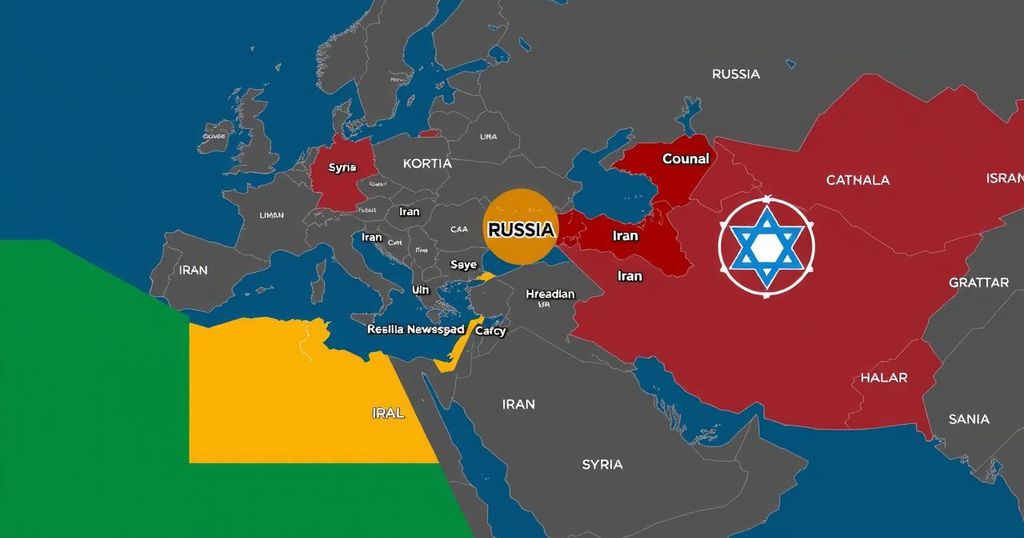The Syrian civil war, intensifying since 2012, has resulted in complex international alliances. Bashar al-Assad’s government, supported by Russia and Iran, faces opposition from rebel groups backed by Turkey and other Gulf nations. The positions of states in the region vary widely, with some shifting toward diplomatic relations with Assad’s regime. Many nations, like Yemen and Lebanon, exhibit distinct stances, while political instability in countries like Libya adds to the region’s divisions.
The ongoing Syrian civil war, which escalated in 2012, has drawn significant international involvement, highlighting the fragmented political landscape of the Middle East. The government led by Bashar al-Assad has garnered substantial support from allies like Russia, which intervened militarily in 2015, and Iran. In contrast, opposition forces receive backing from regional actors, notably Turkey, a prominent supporter of several rebel factions. While the Gulf states initially unified in their calls for Assad’s ouster, there has been a noticeable shift in attitude, particularly from the UAE, suggesting a more conciliatory approach towards the Assad regime. Yemen represents the only nation openly supporting Assad, while Lebanon’s official stance is neutrality, despite Hezbollah’s military support for the government. The varying responses among Middle Eastern countries illustrate the complexities of geopolitical alliances shaped by both ideology and the specifics of regional conflicts. Moreover, the instability within countries such as Libya, which remains fractured, complicates the overall regional positioning on the civil war. Additionally, territories like the Palestinian areas and Western Sahara lack any formal stance, further reflecting the broader discord in Middle Eastern diplomacy concerning the Syrian conflict.
The Syrian civil war has not only changed the country’s political landscape but has also reshaped alliances and rivalries across the Middle East. Beginning in 2012, the conflict drew massive international attention and participation, dividing regional actors into camps that either support Assad or oppose his regime. Countries like Russia and Iran have been pivotal in maintaining Assad’s power, while regional powers, particularly Turkey and Gulf states, have altered their stances over time based on shifting political dynamics. This bifurcation highlights the intricate web of alliances, enmities, and the influence of external powers on Middle Eastern politics.
The Syrian civil war exemplifies the deep-seated divisions and realignments within the Middle East, where nations navigate their political interests amid a backdrop of conflict and instability. Support for Assad continues to manifest through military and diplomatic channels from allies such as Russia and Iran, whereas opposition forces remain fortified by regional supporters like Turkey. Meanwhile, the changing positions of Gulf states reveal a nuanced understanding of the conflict, indicating an evolving perspective on diplomacy. Ultimately, the war continues to shape the geopolitical landscape, affecting stability and relations within the region.
Original Source: www.newsweek.com






